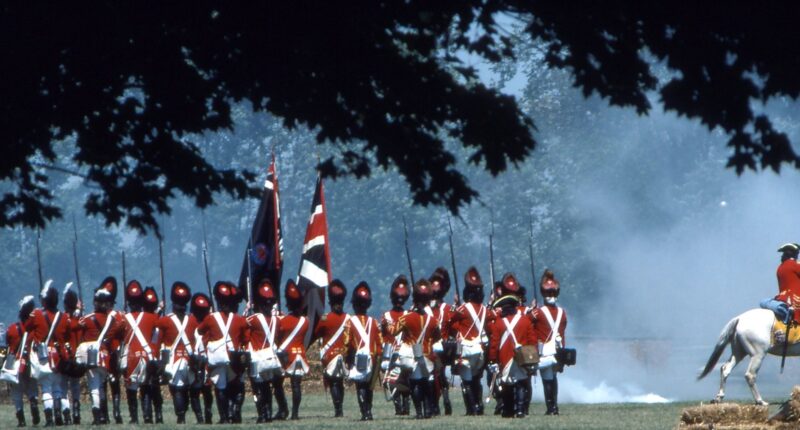I know what most people think Black History is. Slavery, Jim Crow, Martin Luther King, the Civil Rights Movement, Harriet Tubman, and Blacks fighting for equality with the mighty, powerful “White man.” Black history also means fighting to get this mighty powerful White oppressor off Black people’s neck. Many people also think Black history are all the Black firsts: Jack Johnson as the first black Heavyweight Champion of the White boxing establishment, Joe Louis as the first Black mainstream sports hero in the late 1930s (mainstream heroism basically means White people loved him too). Other notable firsts are Jackie Robinson as the first Black to make it to the White owned Major League Baseball in 1947, Thurgood Marshall was the first Black to make it to the White owned Supreme Court in 1967, and of course, we can’t forget, President Barack Obama becoming the first Black president of the White owned mainstream political establishment in the US of A.
All of these first accomplishments are great. But after awhile, it will start to give Blacks a subordinate and deferential mentality to Whites. Whites own and run the establishment, and we’re just happy to have a first in a high level, coveted position in an establishment still owned and ran by them. It probably gives Whites an air of superiority to know people that look like them, own and run establishments that we’re just happy to become the first to attain a high-level position in.
Martin Luther King, Malcolm X, W.E.B. Dubois, Booker T. Washington, Harriet Tubman, Frederick Douglass, Sojourner Truth. What do they all have in common? For one, we see their faces plastered everywhere, every February to commemorate Black History Month. Another thing they have in common is that they all displayed courage in fighting against White-sanctioned Jim Crow racism and White-sanctioned slavery. On one hand, you admire the courage of these noble Blacks that fought against evil and adversity, but on the other hand, it’s possible to feel a sense of deference to Whites, knowing all your collective courage and accomplishments is predicated on removing yourself from the Dr. King-described, “second-class citizenship” behind Whites. Whenever you see images of those great Black people, the second image that comes to mind is the reason they existed to begin with: lynchings, slaves, and slave chains, police dogs being sicked on peaceful protestors, “Whites Only” and “Colored” signs, and Ku Klux Klansman.
Despite this, I still admire all these greats. I admire Dr. King’s poetic, eloquent, persuasive oratory, and his determination and courage under fire. I admire Malcom X’s nation-building ideologies, and his ability to debate and talk circles around those condescending White journalists and pysop reporters in 1960s interviews. I admire W.E.B Dubois’ intellectual analysis of racism, Marcus Garvey’s do-for-self, globally unified Pan-Africanism ideologies, Booker T. Washington’s chess-playing deception of Whites by appearing docile and non-threatening in public, while making power moves to benefit Blacks behind the scenes. I admired Harriet Tubman’s bravery as well. I can go on and on about these great Black men and women. I even admire the Black firsts for bypassing racism and clawing their way to the top of their chosen fields.
Whites denied Blacks from professional sports, and as soon as they let Blacks in, Black people dominated most sports. From professional football, basketball, baseball, and boxing, Blacks make up a higher percentage of the top-tier athletes. Seeing this made me think there was something divinely special about Black people, that Whites went to great lengths to keep Black people down.
Whites were upset when Jack Johnson became the first Black Heavyweight champ by beating Tommy Burns to the point of issuing death threats to Johnson. It didn’t help that Johnson talked trash to him as he whipped him. Eventually, the White establishment urged retired, white boxing legend out of retirement as the “Great White Hope” to defeat Jack Johnson. After Jack Johnson defeated him while trash-talking him in their July 1910 fight, Black fans cheered, and racist Whites rioted and attacked and killed several Blacks.
Racist dictator, Adolf Hitler was salty because Jesse Owens upstaged his prized Aryan athletes, including German champion, Luz Long in the 100-meter dash in the 1936 Olympics. He was also salty in June 1938 when boxing legend, Joe Louis beat Max Schmeling, his German fighter who was supposed to represent Aryan dominance over us nigra people. Ironically enough American Whites were rooting for Joe Louis as many racist Germans were rooting for Schmeling, their Aryan hero. This was a White-on-White crime and beef representing a precursor to World War II, when Germany declared war on the United States on December 11, 1941. American Whites still didn’t like us nigra people, but they’ll root for the token nigra to deal with another enemy.
Eventually, Blacks took over sports, and in the 1990s, I used to hear black people muse how Whites wouldn’t let us in sports in that “back in the days” Jim Crow thing. As soon as they did let us in, we took sports over. Then you would hear the cynical Black say, “the White man still owns the team though.” It’s a common thought by Blacks that we have to constantly fight to become equal to Whites and own institutions after that dreadful slavery and Jim Crow thing we just came out of.
I love how Blacks in general are the most musically talented people and started most music genres. Black people invented Blues in Mississippi in the 1880s, Jazz in New Orleans in the 1890s, and Rock-N-Roll and Rhythm-N-Blues in the 1950s. Rhythm-N-Blues later turned into Contemporary R@B in the late 1970s and early 1980s. Black people also started Soul music in the late 1950s, Funk music in the late 1960s, and eventually Hip-Hop music in the Bronx, NY in 1973 and it became a global phenomenon by the 1990s. But there is a concern about Blacks needing to own music record labels and own the masters of the recordings and not just invent and produce the stellar music.
There seems to be a collective thought that Blacks need to own more institutions and produce more Black firsts in high level White institutions as a progress-making continuum from our former plight as slaves and Jim Crow-discriminated second-class citizens. And that rare, Black-owned institution, or self-sufficient, prospering Black community (1920s Black Wall street comes to mind) is looked at with awe because its seen as an anomaly and not a historical norm when thinking about Jim Crow and slavery.
While this is impressive. This is still American Black history and not world Black history. This is only a small portion- a small fraction of a portion at that. Stay tuned for part 2 when we talk about world Black history- and this extends beyond slavery, Jim Crow, Black firsts, and great Black people fighting the mighty oppressor. I know many of us online readers have short attention spans.










